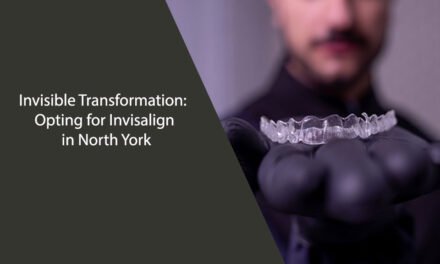Addiction is a complex and multifaceted condition that affects millions of people worldwide. It is characterized by compulsive substance use or engagement in behaviors despite harmful consequences. Overcoming addiction is a challenging process that requires patience, determination, and support. One critical aspect of recovery is rewiring the brain from addiction, which involves rebuilding healthy neural connections and breaking free from the harmful patterns associated with addictive behavior.
In this comprehensive guide, we will explore how long it takes to rewire the brain from addiction, the factors that influence this process, and the various strategies, treatments, and therapies that can help facilitate brain rewiring. By understanding the science behind addiction and the steps necessary for recovery, individuals struggling with addiction and their loved ones can develop a better understanding of the journey toward a healthier, addiction-free life.

Table of Contents
Understanding Addiction and the Brain
Before diving into the process of rewiring the brain from addiction, it is essential to understand the relationship between addiction and the brain. Addiction is a chronic brain disorder characterized by compulsive substance use or engagement in behaviors despite harmful consequences. It affects the brain’s reward, motivation, and memory systems, leading to a cycle of cravings, compulsive use, and withdrawal symptoms when the substance or behavior is not available.
Addiction can be broken down into four primary components:
- Physiological component: The body’s response to intoxicants, including tolerance and withdrawal symptoms.
- Behavioral component: The behavior patterns associated with use, such as seeking out the substance or engaging in the addictive behavior, even when it is not desired.
- Cognitive component: How thoughts are affected by substance use and abuse, including distortions in the perception of reality, self-worth, and the individual’s relationship with the addictive substance or behavior.
- Social component: The impact on relationships with family members, friends, and society.
Understanding the complex interplay between these components is crucial for developing effective strategies for rewiring the brain from addiction.
The Neuroplasticity of the Brain
One of the most remarkable aspects of the human brain is its ability to change and adapt in response to experience. This capacity, known as neuroplasticity, allows the brain to reorganize its neural connections and pathways, enabling individuals to learn new skills, recover from injury, and adapt to new environments.
In the context of addiction, neuroplasticity plays a crucial role in the development and maintenance of addictive behaviors. The repeated exposure to addictive substances or behaviors leads to changes in the brain’s neural pathways, strengthening the connections associated with the addiction and making it more challenging to break free from the cycle of cravings and compulsive use.
However, neuroplasticity also provides hope for recovery. By engaging in healthy behaviors and seeking appropriate treatments, individuals struggling with addiction can leverage their brain’s capacity for change to rewire their neural pathways and break free from the grip of addiction.
Factors Influencing Brain Rewiring
The process of rewiring the brain from addiction is influenced by several factors, including:
- Severity of the addiction: The more severe the addiction, the longer it may take to rewire the brain. This is because the neural connections associated with the addiction have been strengthened over time through repeated exposure to the addictive substance or behavior.
- Duration of the addiction: Longer-lasting addictions may require more time for the brain to rewire, as the neural pathways associated with the addiction have become more entrenched.
- Individual differences: Each person’s brain is unique, and individual factors such as genetics, age, and overall health can influence the rewiring process.
- Co-occurring mental health disorders: The presence of co-occurring mental health disorders, such as depression or anxiety, can complicate the rewiring process and may require additional treatment and support.
- Type of addiction: The brain rewiring process may vary depending on the specific addiction, with some substances or behaviors requiring more time and effort to overcome.
It is important to recognize that the process of rewiring the brain from addiction is not linear, and individuals may experience setbacks and challenges along the way. However, with persistence, support, and the appropriate interventions, recovery is possible.
Stages of Brain Rewiring
While the duration of the brain rewiring process can vary depending on the factors mentioned above, it generally occurs in stages:
- Detoxification: he first stage of rewiring the brain involves detoxifying the body from the addictive substance or behavior. This could involve using products like Detoxify Mega Clean to cleanse the system while also managing withdrawal symptoms, which can be physically and emotionally challenging.
- Early recovery: During this stage, individuals begin to develop new coping skills and strategies to replace the addictive behavior. They may also start to address the underlying issues that contributed to their addiction, such as trauma, stress, or mental health disorders.
- Sustained recovery: As individuals continue to practice healthy behaviors and engage in treatment, the neural pathways associated with addiction weaken, and new connections are formed. This stage is marked by increased self-awareness, improved decision-making, and a reduced risk of relapse.
- Maintenance: In the final stage, individuals work to maintain their new neural connections and healthy behaviors while continuing to address any ongoing challenges or triggers that may arise.
It is important to note that the brain rewiring process is ongoing and requires continuous effort and support to maintain the gains achieved during recovery.
Cognitive-Behavioral Therapy
Cognitive-behavioral therapy (CBT) is a widely-used and evidence-based approach to treating addiction. It involves identifying and challenging unhelpful thoughts and beliefs associated with the addiction and developing new, healthier patterns of thinking and behavior.
CBT can help individuals struggling with addiction in several ways:
- Identifying triggers: CBT can help individuals recognize the situations, emotions, or thoughts that trigger their cravings or addictive behaviors.
- Developing coping skills: CBT teaches individuals new ways to cope with stress, emotions, and cravings without relying on the addictive substance or behavior.
- Challenging distorted thoughts: By addressing the cognitive distortions associated with addiction, CBT can help individuals shift their perspective and improve their self-esteem and motivation.
- Relapse prevention: CBT provides individuals with the tools and strategies to prevent relapse and maintain their recovery over the long term.
Eye Movement Desensitization Reprocessing (EMDR)
Eye Movement Desensitization Reprocessing (EMDR) is a therapy that has been shown to be effective in treating trauma and other psychological issues, including addiction. EMDR works by helping individuals process and release the emotional memories associated with past traumatic experiences, which can contribute to the development and maintenance of addiction.
During EMDR sessions, individuals focus on specific aspects of their traumatic experiences while engaging in bilateral eye movements, which are thought to stimulate the brain’s natural information-processing system and facilitate the integration and resolution of the traumatic memories.
EMDR can be a valuable component of the brain rewiring process for individuals struggling with addiction, particularly when trauma or unresolved emotional issues are contributing to their addictive behaviors.
Mindfulness and Meditation Practices
Mindfulness and meditation practices have been shown to be beneficial in the addiction recovery process, as they can help individuals develop greater self-awareness, emotional regulation, and stress management skills. By cultivating a non-judgmental awareness of their thoughts, emotions, and bodily sensations, individuals can learn to respond to cravings, triggers, and other challenges more effectively and with greater resilience.
Some popular mindfulness and meditation practices that can support the brain rewiring process include:
- Mindfulness-based stress reduction (MBSR): A structured program that teaches individuals how to cultivate mindfulness through meditation, body awareness, and other techniques.
- Mindfulness-based cognitive therapy (MBCT): A therapy that combines elements of CBT with mindfulness practices to help individuals recognize and disengage from unhelpful thoughts and patterns of behavior.
- Loving-kindness meditation: A practice that involves cultivating feelings of compassion and goodwill toward oneself and others, which can help counteract the negative self-talk and self-blame often associated with addiction.
Exercise and Physical Activity
Engaging in regular exercise and physical activity can play a crucial role in the brain rewiring process. Exercise has been shown to promote neuroplasticity, increase the production of brain-derived neurotrophic factor (BDNF), and enhance cognitive function, all of which can support the development of new neural connections and the breaking of addictive patterns.
Some of the benefits of exercise for addiction recovery include:
- Improved mood: Exercise can help alleviate symptoms of depression and anxiety, which are common co-occurring disorders in individuals struggling with addiction.
- Stress management: Physical activity can help individuals develop healthier ways of coping with stress and reduce their reliance on addictive substances or behaviors.
- Increased self-esteem: Regular exercise can improve self-image and confidence, which can be beneficial for individuals working to rebuild their lives after addiction.
- Enhanced social connections: Participating in group sports or exercise classes can provide individuals with a supportive community and opportunities for social interaction, which can be important for maintaining recovery.
Support Networks and Social Involvement

The support of friends, family members, and other individuals who understand the challenges of addiction recovery can be invaluable in the brain rewiring process. Support networks can provide encouragement, accountability, and practical assistance as individuals work to overcome their addiction and develop new, healthy habits and behaviors.
Some options for developing support networks and increasing social involvement during addiction recovery include:
- 12-step programs: Groups such as Alcoholics Anonymous (AA) and Narcotics Anonymous (NA) provide peer support and a structured approach to recovery based on the 12-step model.
- Recovery support groups: Many communities offer non-12-step recovery support groups that provide a safe space for individuals to share their experiences and learn from one another.
- Family therapy: Involving family members in the recovery process can help strengthen relationships and provide additional support and understanding.
- Volunteering: Engaging in volunteer work can provide individuals with a sense of purpose and connection to their community, while also offering opportunities for social interaction and personal growth.
Frequently Asked Questions
How long does it take to rewire the brain from addiction?
The amount of time it takes to rewire the brain from addiction can vary depending on factors such as the severity and duration of the addiction, individual differences, and the type of addiction. While progress can be seen within six weeks to six months, the process of rewiring the brain is ongoing and requires continuous effort and support.
What are some of the benefits of rewiring the brain from addiction?
Rewiring the brain from addiction can lead to a range of benefits, including the development of healthier coping skills, improved decision-making, increased self-esteem and motivation, reduced cravings, and the ability to reconnect with oneself and others in meaningful ways.
Where can I seek help for rewiring the brain from addiction?
Professional help is available through therapists, counselors, and addiction specialists who can provide guidance and support throughout the brain rewiring process. Treatment options may include cognitive-behavioral therapy, EMDR, mindfulness practices, medication, and support groups.
In conclusion, rewiring the brain from addiction is a challenging but rewarding process that requires time, effort, and support. By understanding the science behind addiction and engaging in appropriate treatments and strategies, individuals can leverage their brain’s capacity for neuroplasticity to overcome addiction and lead healthier, more fulfilling lives.





